However, this is only a temporary solution.
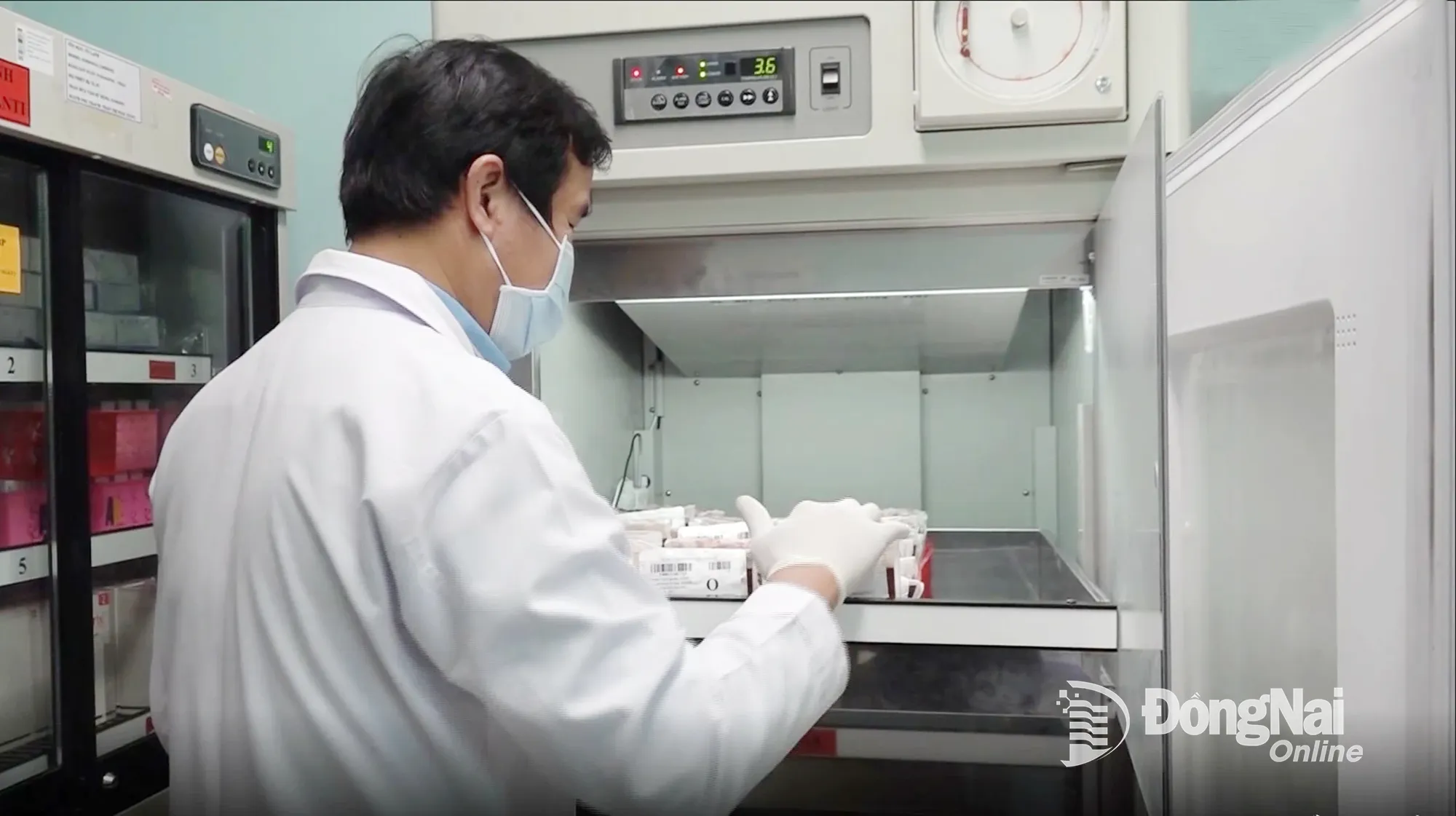 |
| Dong Nai General Hospital uses more than 300 units of blood per week but is currently only supplied with 200 units of blood per week. Photo: Bich Nhan |
Blood type A is in short supply at "red alert" level
On July 28, Dong Nai General Hospital reported to Dong Nai Department of Health about the shortage of blood products. According to Dong Nai General Hospital, on average, it performs 80-100 surgeries per day in the following specialties: general surgery, neurosurgery, trauma surgery, obstetrics, oncology, cardiology... At the same time, the hospital regularly receives and treats serious diseases such as: blood clotting disorders, gastrointestinal bleeding, severe dengue fever, bone marrow failure, leukemia and other malignant hematological diseases... Therefore, the demand for blood and blood products at the hospital is always high, playing a decisive role in the effectiveness of treatment and the lives of patients.
In 2024 alone, the total amount of blood used at the hospital is more than 17 thousand units of blood (1 unit equals 350ml), accounting for 50% of the total amount of blood used in the entire Dong Nai province.
Previously, the Blood Transfusion Center of Cho Ray Hospital in Ho Chi Minh City was the unit providing blood products to hospitals in the province. Dong Nai General Hospital alone provided an average of over 300 units of blood per week. However, since the beginning of July, it has decreased to about 200 units per week, not meeting the actual needs of the hospital.
Hospitals usually reserve the main blood types: O, A, B, AB. Every day, the hospital must use at least 30 - 40 units of blood. However, currently all of these blood types are in short supply.
“We no longer have type A blood to transfuse to patients. In many emergency cases or severe cases requiring blood transfusion, doctors have to use type O packed red blood cells to replace patients with type A blood. This is only a temporary replacement due to potential risks, especially in major surgeries, emergency treatment for hemorrhagic shock, and complex hematological diseases,” shared Dr. Le Van Thong Nhat, Head of the Department of Hematology and Blood Transfusion, Dong Nai General Hospital.
At peak times, blood supplies are only sufficient for emergency patients, while in other cases, doctors are forced to transfuse “drips”, measuring each unit of blood just enough to maintain stability for the patient. The shortage of blood products has been affecting inpatient treatment at hospitals.
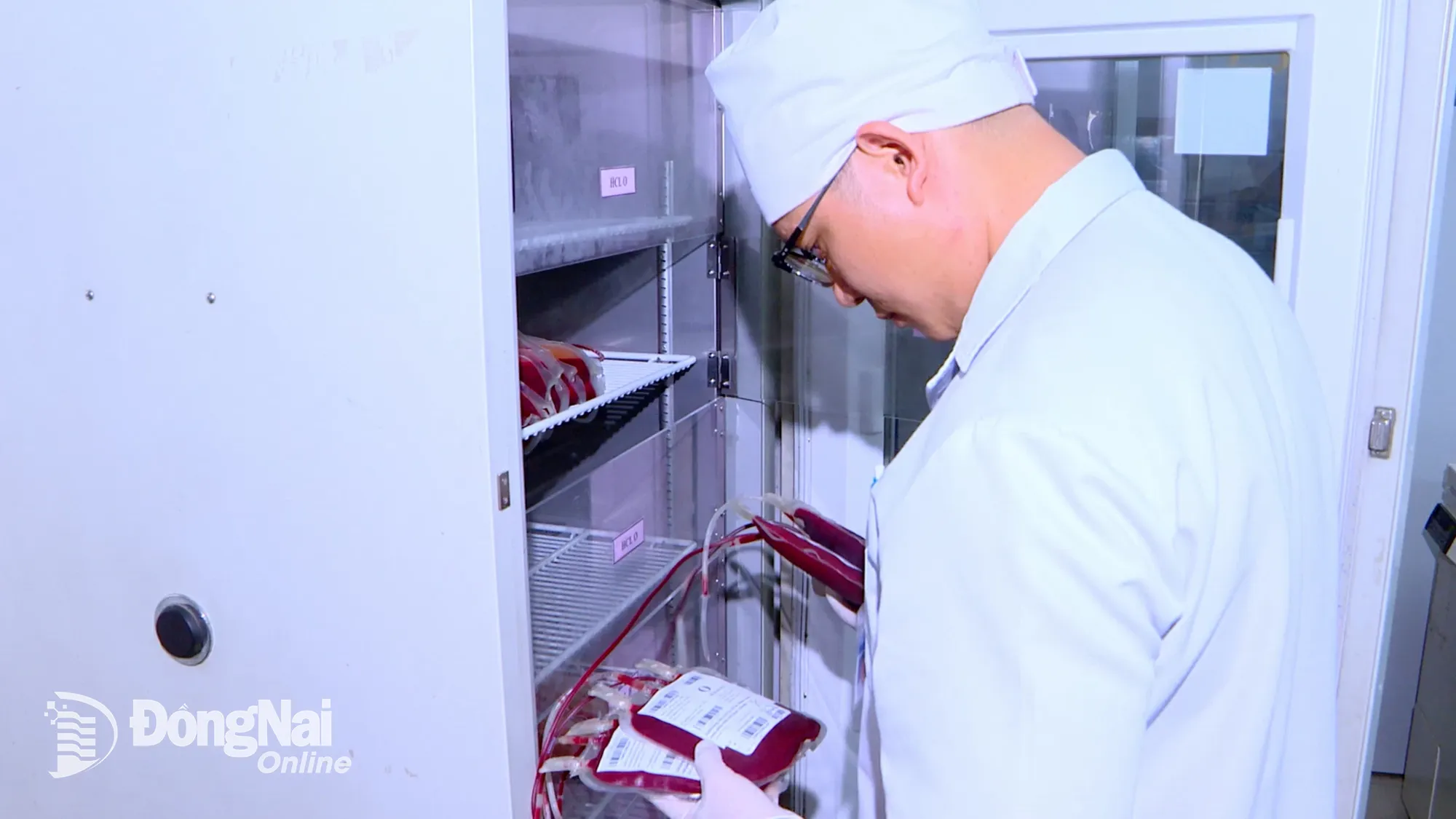 |
| Medical staff check blood reserves at Thong Nhat General Hospital in Dong Nai. Photo: Bich Nhan |
Similarly, for about 2 weeks now, Long Khanh Regional General Hospital has also been in a state of blood shortage.
Pharmacist Nguyen Thanh Hung, Head of the Laboratory Department, Long Khanh Regional General Hospital, said: On average, the hospital uses nearly 100 units of blood each week, depending on the patient's condition and the clinician's assessment.
Like other hospitals, of the four blood types: A, B, O, AB, blood type A is in serious shortage. The hospital has to mobilize a “living blood bank” from medical staff and patients’ relatives.
“Previously, we only had to take a bus to the Blood Transfusion Center of Cho Ray Hospital in Ho Chi Minh City once a week to receive blood, but now it has increased to 2-3 times. However, the Blood Transfusion Center of Cho Ray Hospital in Ho Chi Minh City also announced that blood type A is rare, and it is difficult to meet the needs of hospitals,” said pharmacist Hung.
Specialist Doctor 2 Ho Thi Phuong Anh, Head of the Hematology Department, Thong Nhat General Hospital, Dong Nai, added: Due to the scarcity of blood reserves, the hospital has to draw blood almost every day. But there are days when we have to go back without a car because the Blood Transfusion Center of Cho Ray Hospital in Ho Chi Minh City is also short of blood, especially blood type A. Compared to last week, this week, the blood supply has decreased by 50-60% compared to the hospital's needs.
“We have to calculate carefully, only transfusing blood in emergency cases, severe cases that require blood, and in cases where the condition can be controlled, we have to delay. We hope this situation does not last long,” said Dr. Phuong Anh.
Fixed blood donation points will be established.
When implementing a fixed voluntary blood donation point at Dong Nai General Hospital, Cho Ray Blood Transfusion Center will provide supplies such as blood bags, blood collection needles, etc. to the hospital. The leaders of Dong Nai General Hospital have sent a document proposing the Department of Health and the Department of Finance to advise the Provincial People's Committee to consider, supplement funding and allow the hospital to soon implement a fixed voluntary blood donation point to improve the situation of shortage of blood reserves.
Difficulty in solving the "problem" of anemia
Explaining the cause of the anemia, specialist doctor 2 Nguyen Van Binh, Deputy Director of the Department of Health of Dong Nai province, shared: In the past, the blood supply for medical examination and treatment basically met the demand thanks to the supply of the Blood Transfusion Center of Cho Ray Hospital in Ho Chi Minh City and the Blood Donation Mobilization Committee of Dong Nai province.
The Red Cross plays an important role in mobilizing voluntary blood donation and organizing mobile blood donation points in localities. However, there are currently changes in the organizational structure of the Red Cross, which have somewhat affected the source of donated blood.
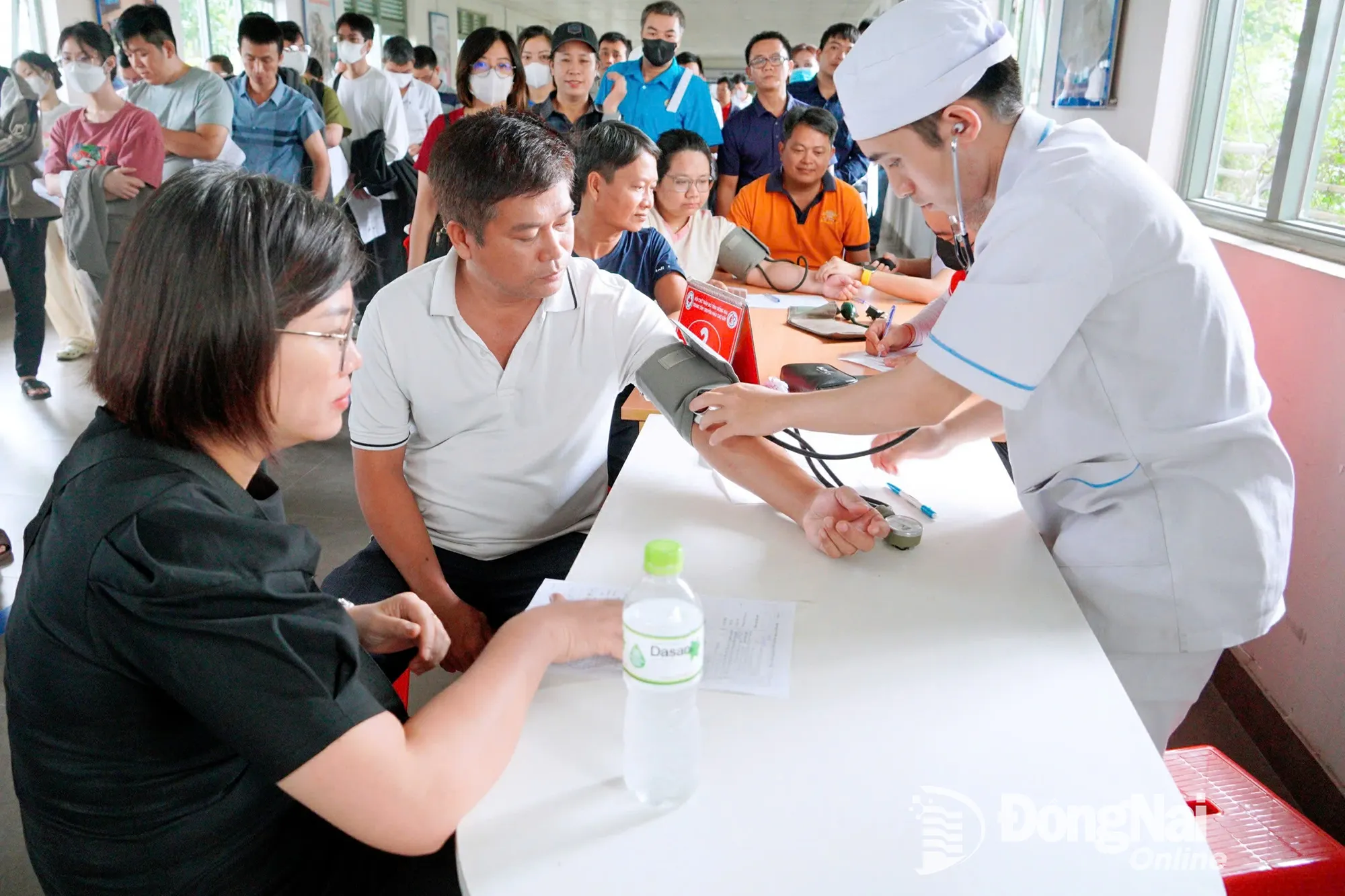 |
| Doctors check people's health before donating blood. Photo: Bich Nhan |
In addition, it is currently summer vacation time for students, so the number of people donating blood is limited. Meanwhile, hospitals in Dong Nai province use a large amount of blood. In 2024 alone, the whole province will use up to 33,000 units of blood, of which Dong Nai General Hospital accounts for about 17,000 units of blood.
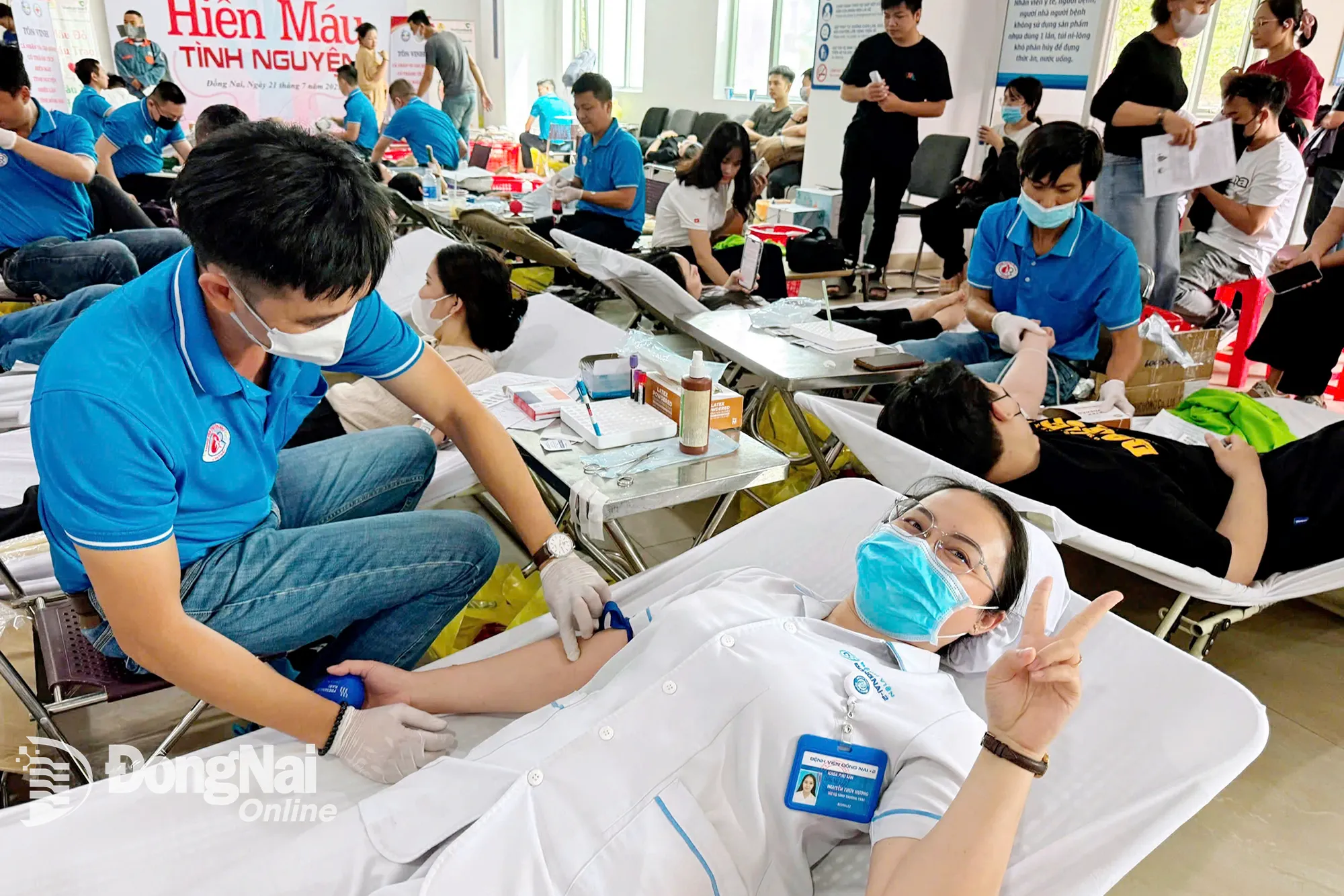 |
| Faced with a shortage of blood reserves, hospitals have used "living blood banks" from medical staff and patients' relatives. In the photo: Many medical staff and patients' relatives donate blood at Dong Nai Hospital - 2. Photo: Bich Nhan |
Faced with this situation, the Department of Health, the Blood Transfusion Center of Cho Ray Hospital in Ho Chi Minh City and related departments and agencies have worked with Dong Nai General Hospital to establish a permanent voluntary blood donation reception point at the Hematology Department of Dong Nai General Hospital. Since then, Dong Nai General Hospital has prepared personnel and facilities to wait for the Department of Health and the Blood Transfusion Center of Cho Ray Hospital in Ho Chi Minh City to assess and grant a license to operate.
“If this model is successful, it will continue to be replicated in other hospitals in the area. However, to solve the current urgent problem of blood shortage, hospitals must use the “living blood bank” from medical staff and patients’ relatives so as not to affect the process of medical examination and treatment, and saving the patient’s life,” Dr. Binh emphasized.
At the same time, hospitals also review the entire blood use process, use blood reasonably, according to indications, and avoid waste.
It is expected that on August 16, Dong Nai General Hospital will organize a voluntary blood donation program at the hospital and mobilize about 500 units of blood.
Bich Nhan
Source: https://baodongnai.com.vn/xa-hoi/y-te/202507/thieu-mau-tram-trong-nhieu-co-so-y-te-tai-dong-nai-keu-goi-hien-mau-cuu-nguoi-f00109d/


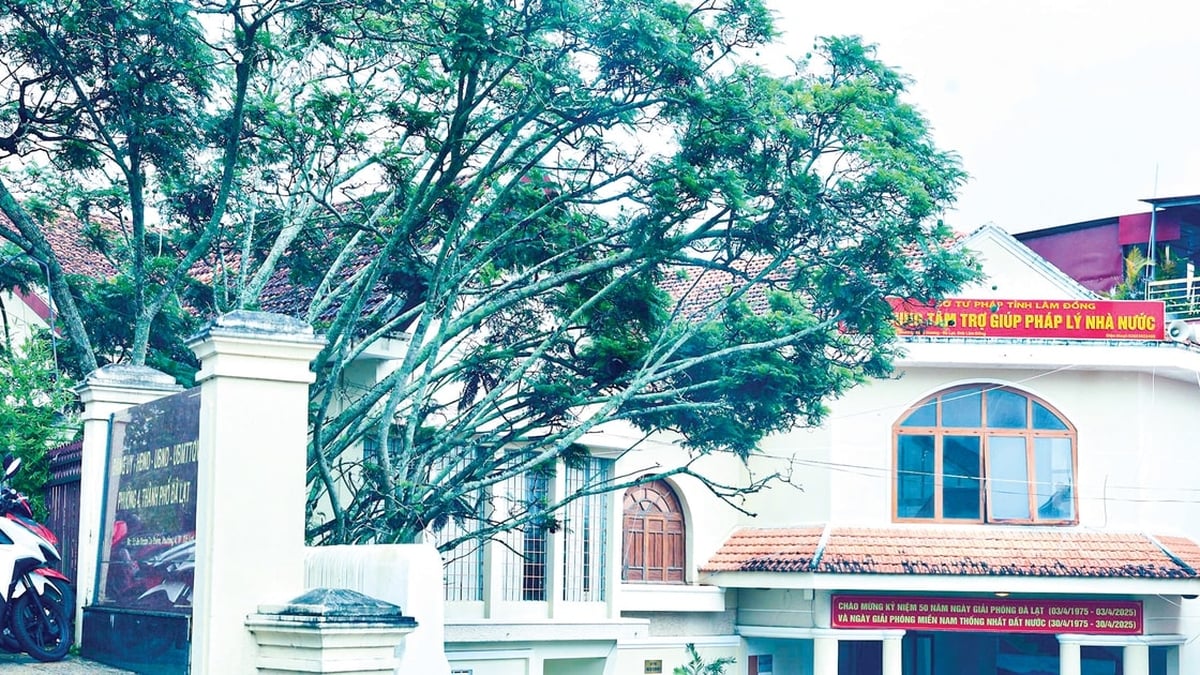

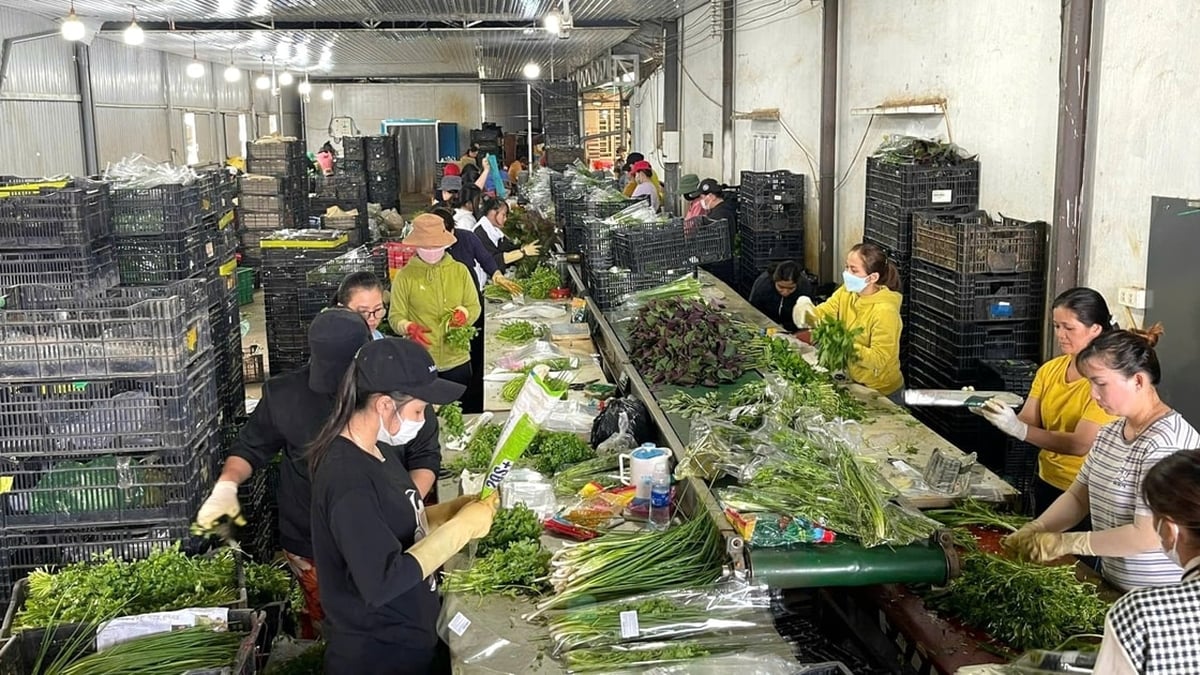


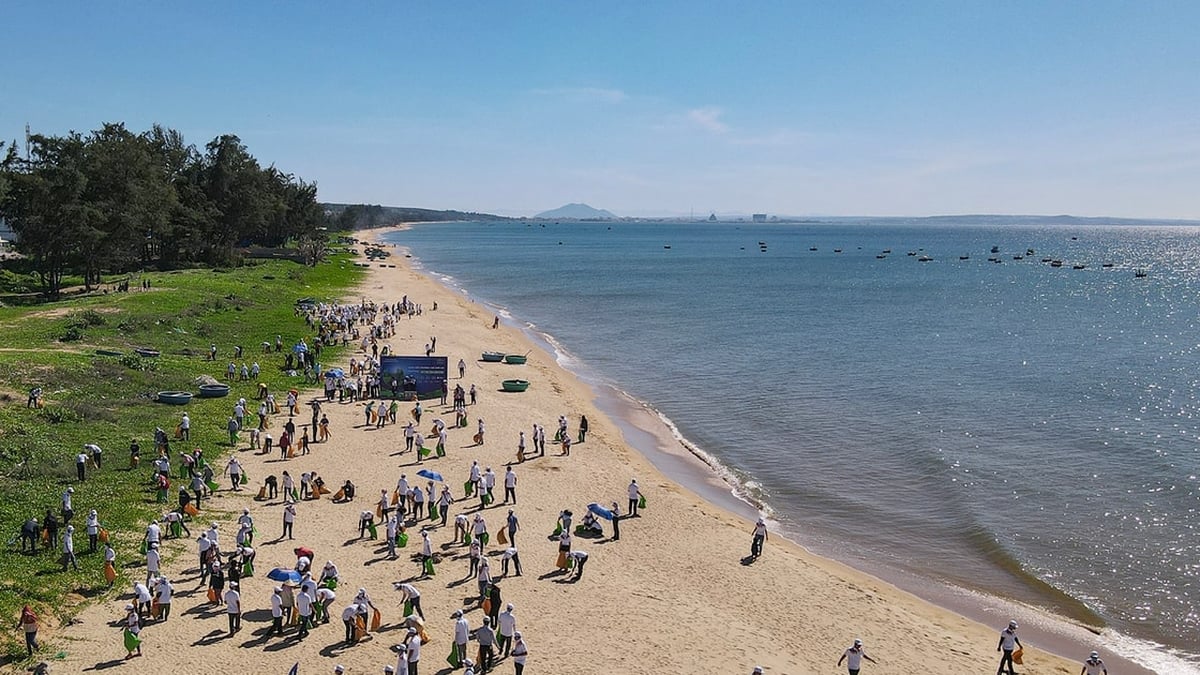












































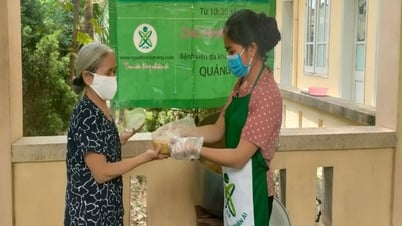

































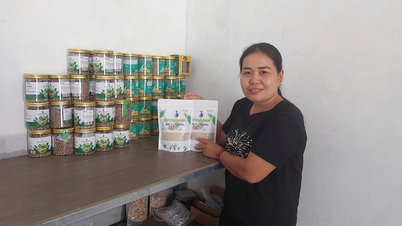














Comment (0)